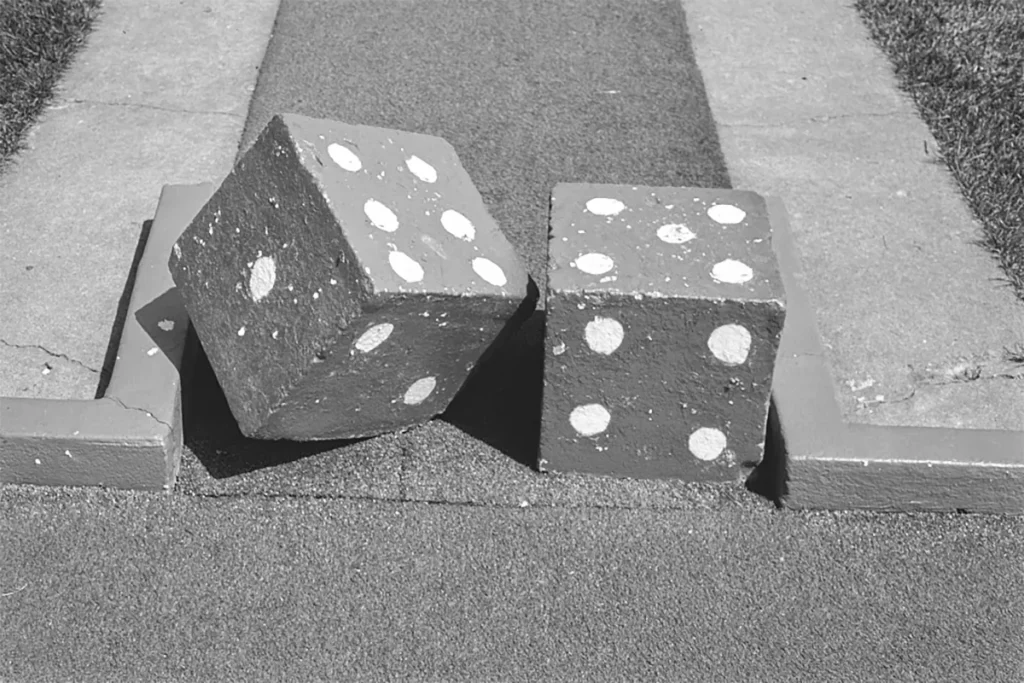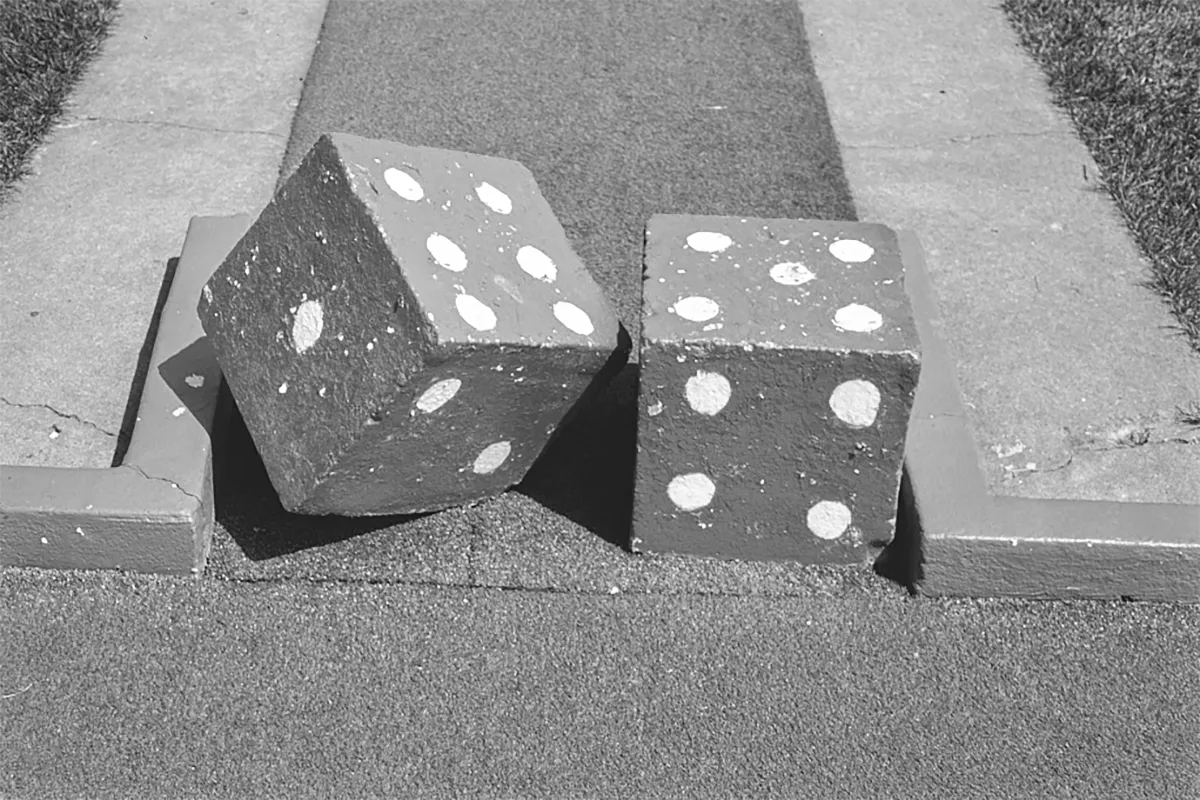Randomness is caused by any phenomenon within a system that creates unpredictability in the attributes of an individual element or collection of elements in the system
A random introduction
What is the most random thing you can think of? If you are sipping on a hot mug of coffee or tea as you read this, then the contents of your glass are an excellent place to start. Let us zoom in with our mind’s eye and dive under the steaming surface of your satisfying beverage of choice. Behold, a molecule! It is one of the hundreds of intricate compounds that give rise to your drink’s unique aroma and taste. Look at it bouncing about in the liquid, crashing and careening off of its neighbors. Can you guess where it will strike next? The possibilities are practically endless. Our little molecule is in fact guided on its journey through the mugscape by subtle, microscopic and even subatomic forces. But for all intents and purposes, the path it takes is random. And that is just fine, because your drink will be hot and delicious either way.
But what if randomness made all the difference in the world? How would you feel if the players on your favorite sports team were recruited at random from the wider pool of talent in the league? Or what if the leader of your nation were selected through an arbitrary lottery system? Would these be good ways to assemble a team or pick a president? In these cases the pure influence of random chance would rule the outcome, practically untethered from any filters like skill, experience or qualifications. So the results might be quite disappointing indeed.
The truth is that we coexist with randomness, and at opportune times even harness it to bring about fairness and introduce variety to our lives. Let us look more closely at what randomness is and how it is commonly employed in games. We will also examine the benefits of bringing in randomness into gameplay, and some ways those efforts can be subverted. Finally, we will consider a few best practices for how randomness can best be incorporated into a game.
What is randomness?
Randomness is caused by any phenomenon within a system that creates unpredictability in the value, position or other attributes of an individual element or collection of elements of the system. In other words, randomness is uncertainty. There are also degrees to this uncertainty: there might be billions of solutions to a calculation that attempts to pinpoint where our beverage molecule will be located ten seconds later, but the roll of a six-sided die will always yield one of only six possibilities. Even our scenario in which the players on a sports team are selected at random is moderated by the reality that our pool of candidates only includes people who have made it their life’s work to play their sport at an elite level. So while your team probably will not win the championship, it might manage to avoid succumbing to abject embarrassment against its opponents.
Randomness generators in games commonly take the form of shuffling cards, rolling dice and flipping coins. But why do we do these things? What is the point of adding randomness to a game, anyhow? Here are a few reasons:
- Monotony is eliminated because the order in which resources will be distributed is unknown and full of possibilities, game after game
- Resources can be distributed in an unpredictable manner, which promotes fairness since no player can expect to receive a specific combination of resources
- Players must make the best of the resources given to them, which encourages them to play strategically
When randomness unravels
Because the most common randomness generators used in games are so simple, they can be thwarted by various means. If a player develops the ability to count cards, if they shuffle a deck of cards in a manipulative manner, or if they swap out a regular die with a weighted one, that player can reduce or alter the impact of randomizing mechanisms in the game, thereby gaining an advantage over their opponents. Most of these approaches constitute cheating (card counting can be thought of as an exception because pulling it off takes a certain amount of skill in its own right), and are generally to be frowned upon.
Tips for incorporating randomness into a game
How can we reliably introduce an optimal level of randomness into gameplay? Here are a few points to consider:
- The randomizing action should be difficult to circumvent. Players should not easily be able to sabotage this step by marking cards, substituting their own equipment, or engaging in other scurrilous practices.
- The randomizing action should be quick and easy to execute. If shuffling cards or rolling dice are appropriate, use those. Try to avoid using randomness generators that take more than two steps, otherwise you are also adding tedium to the game.
- The randomizing action should introduce a large amount of uncertainty. The more varied the possibilities, the more interesting each game session will be.
- The role of randomness in the game should not dominate outcomes. Treat randomness like a spice, particularly if your game is intended to be a test of strategy and skill for its players. A little will go a long way.
Random closing thoughts
Randomness is a fundamental feature of our natural world, and in gameplay it can even be quite a positive force when harnessed with care and moderation. But too much randomness, or randomness that weighs too heavily on the final result, can spoil the fun. So if ever you find yourself living in a country where your leader is chosen by some random, inscrutable means, I suggest you pick up and move. But how to choose where to go? Just close your eyes and throw a dart at a map. As long as it strikes land, you are probably better off there.



